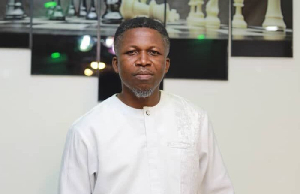The United States of America is impacting its influence in West Africa to halts its Economic Partnership Agreement (EPA) with European Union, in retaliation to the failed talks between the European Union (EU) and the United States of America (USA) on the Trans-Atlantic Trade and Investment Partnership (TTIP).
Reliable Information from sources of Government of Ghana available to TodayGhanaNews.com indicates that, the USA governments through aid organisations in West Africa have increase its resource allocation to civil society organisation and pressure groups to intensify its campaign for a total rejection of EU’s EPA agreements with ECOWAS.
After ten years of talks, West Africa and the European Union (EU) concluded in February 2014 the negotiations for an Economic Partnership Agreement (EPA).
President John Dramani Mahama of Ghana is a lead advocate of the EPA in the ECOWAS region, wants other leaders across the sub-region to sign unto the agreement on or before the October 1st deadline.
According to him, it will be in the best interest of the sub-region to promote regional integration by agreeing to the EPA.
“It is desirable for the sub-region to continue to work for a common EPA and despite the fact that it has become imperative for Ghana and Cote D’Ivoire to go ahead and sign the interim EPA, we will continue to work to ensure so that we bring the whole sub-region onboard so that it advances the course of our integration,” he said recently at an ECOWAS summit in Ghana.
Nigeria, Ivory Coast, and some ECOWAS countries have stated their clear rejection of the EPA due to pressure from local civil societies organisations sponsored by the American CIA.
Civil society organisations and opponents of the agreements believes that, the ECOWAS negotiators have failed to properly interpret the relevant WTO rules and have tended to accept EU’s interpretation of the rules which favours its interest.
As a result majority of the subjects within the ECOWAS EPA have nothing to do with WTO rules. Even the few items that are covered by the WTO rules, there are many options that could have been applied than what is in the ECOWAS text.
The ECOWAS text covers issues relating to the conditions under which import and export of goods can take place between West African countries and the EU (goods EPA). This is the part of the negotiations which have been concluded so far. But in addition, the ECOWAS-EPA text contains what is known as a rendezvous clause, a commitment that within six (6) months after concluding the agreement regarding imports and exports, the parties adopt a firm agenda for liberalisation of the other sectors of the West Africa economies.
West Africa accounts for more than 38% of total trade between the EU and all African, Caribbean and Pacific (ACP) regions. The EU supplies a large part of the equipment that contributes to economic growth and development in the region and is the main export market for West African agricultural and fisheries products. European annual exports to West Africa are worth approximately €31 billion. West African exports to the EU account for €37 billion.
Late August, EU power house German Vice Chancellor and Economy Minister Sigmar Gabriel announced that talks between the EU and the USA on the Trans-Atlantic Trade and Investment Partnership, or TTIP, have essentially failed.
Washington has been insisting that the free trade deal be signed before the end of 2016, but it has encountered strong opposition from a number of European nations, not only Germany.
Sigmar Gabriel, the second-ranking politician in Europe's largest economy is basically rejecting the American-EU transatlantic free trade deal known as TTIP, reveals “In my opinion the negotiations with the United States have de facto failed, even though nobody is really admitting it,” the minister told ZDF broadcaster, according to a written transcript of the interview aired on last Sunday.
The agreement is the first Economic Partnership that brings together not only the 16 countries of the region but also their two regional organisations: the Economic Community of West African States (ECOWAS) and the West African Economic and Monetary Union (UEMOA). This is a clear indication of the West African drive towards closer regional integration, which the EPA seeks to support.
EU – West Africa trade in services is expanding (reaching € 15 billion in 2013) covering notably transportation and logistics, travel, and business services: 64% of West Africa's exports of services were directed to the EU, and 31% of West Africa's imports of services originated from the EU. West Africa is also the most important investment destination for the EU in Africa. The EU's stock in West Africa accounted for more than €32 billion in 2012 (31% of West Africa's inward stocks from the world).
Source: Seth Addi /TodayGhanaNews.com
Business News of Thursday, 6 October 2016
Source: seth addi /todayghananews.com












